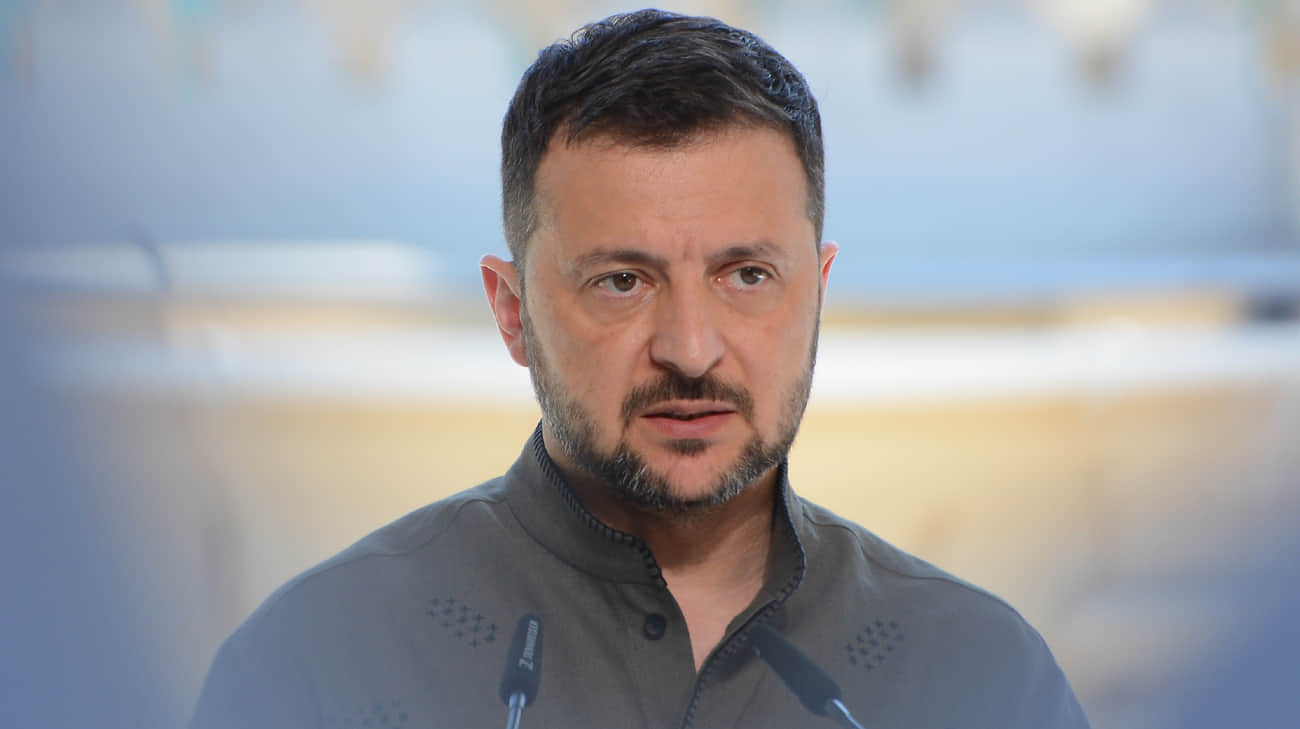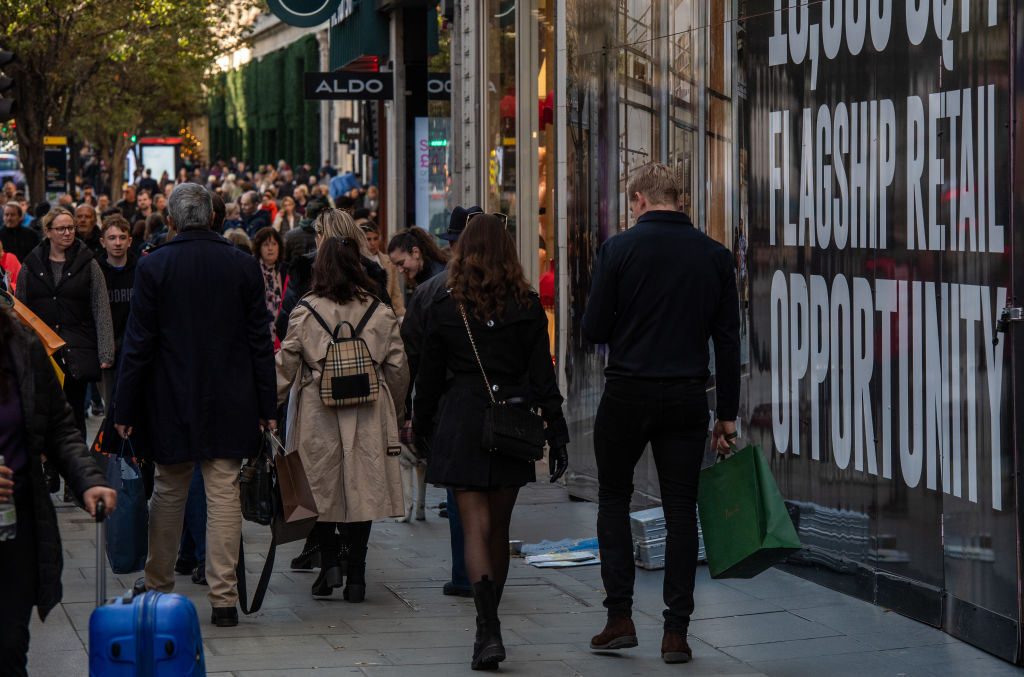I am a sexless being. I know not what it is to be a woman at war
Men's underwear has replaced stilettos for artist-turned-soldier Eva Tur; she smokes cigars and calls comrades "buddy" and "brother," but knows not how to be female in the hell of war
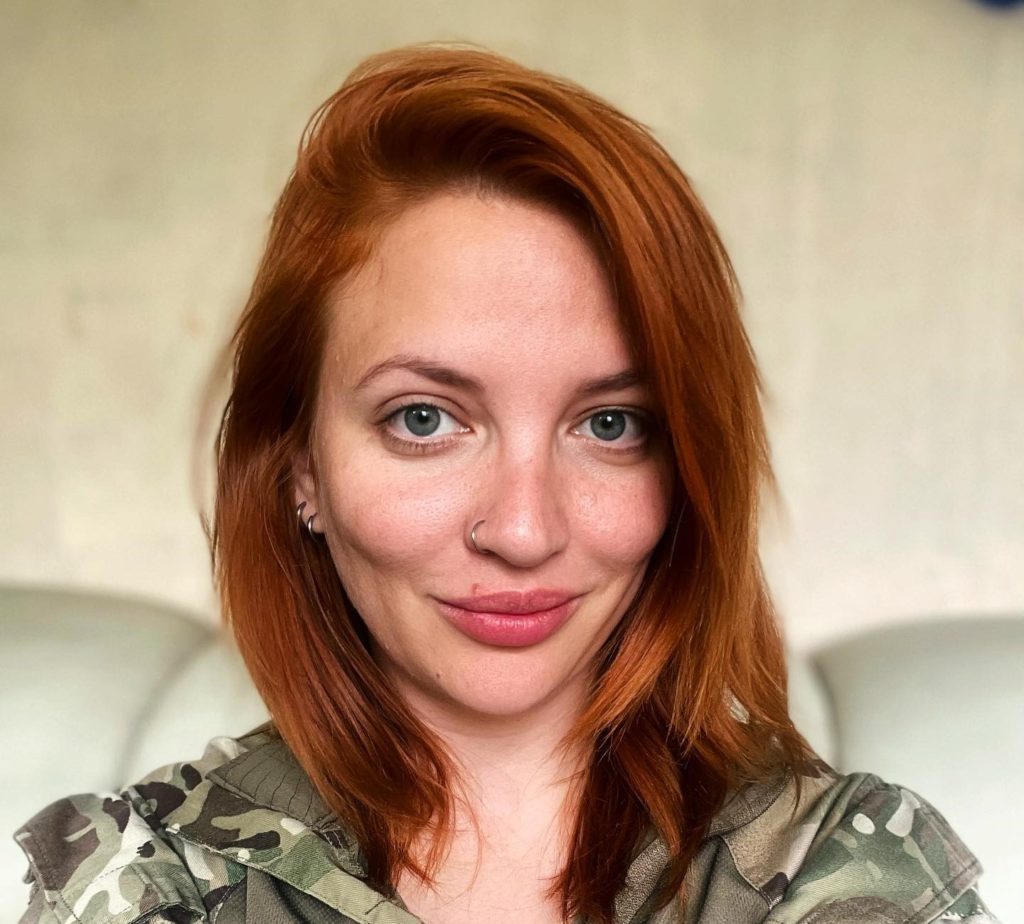

War has traditionally been viewed as male-dominated, despite women’s historical contributions on battlefields and home fronts. However, their role is rapidly evolving, particularly in Ukraine amid Russia’s invasion, prompting thousands of Ukrainian female fighters to serve in the military – both in combat roles and non-combat capacities. Ukraine’s Defense Ministry stated that nearly 43,000 women were serving as of October 2023 – a 40% increase since 2021, before Russia’s full-scale invasion in February 2022.
Among those who chose to abandon regular life to defend Ukraine against Russian aggression are representatives from various artistic fields. Eva Tur, a Ukrainian artist, is one of them. She combines military service with her creative talents.
Eva Tur, a graphic artist, art critic, poet, and mother, serves in the Ukrainian Armed Forces. Born in Poltava Oblast, she developed a fascination with Ukrainian history, particularly the Cossack era, from childhood. This fascination revealed to her Russia’s continuous attempts to suppress Ukrainian independence. In 2014, when Russia invaded Crimea and the Donbas, Tur joined Ukraine’s defense as a paramedic in the Donetsk sector.
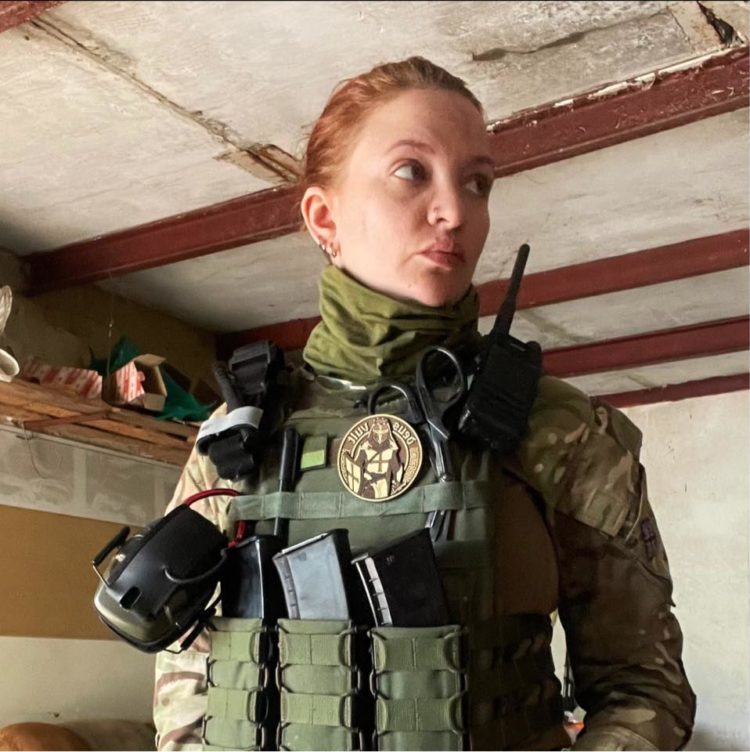
In her novel “Ambulance,” Tur vividly recounts taking her face in her palms, trying to pull it back as it melts like dripping ice cream. Experiencing flashbacks of machine gun fire, she grimaces in pain, gripped by sudden fear, realizing she cannot get up, and presses her body into the carpet – but it is no longer the floor of her apartment.
Tur expresses gratitude for the men around her who became brothers, though many perished in the war, including her husband and best friend. She says they pay the highest price for independence and freedom.
Her family’s history illustrates the systematic persecution Ukrainians faced from Russia.
Tur’s great-grandfather Ivan Stepaniuk built a school in his yard to teach children literacy, but the Soviets looted and destroyed it. Arrested as an “enemy of the people,” he was convicted by the NKVD Special Troika, a group of three officials who issued sentences to the accused after simplified investigations and without a public trial.
Tur’s great-grandfather was summarily convicted and died in exile.
“Knowing your family’s history, it’s impossible to stay away from what’s happening now,” Tur states.
Before the full-scale invasion, she had planned to return to creative work like graphic design and painting but instead chose to volunteer. While it is difficult being away from her children, Tur says there is no other way. Above all, she wants her generation to overcome “this devil invasion from Russia” so the children, many now half-orphans, will not have to sacrifice their lives for their country.
“May God give us the strength to end this war,” she says.
While acknowledging the war is shifting societal perceptions of female strength and capabilities, Eva Tur, like other Ukrainian female fighters, says that sexism, prejudice, and discrimination persist, requiring them to continually prove themselves to male colleagues.
In this context, Eva Tur has penned a poem describing her identity in the ranks of the Armed Forces of Ukraine.
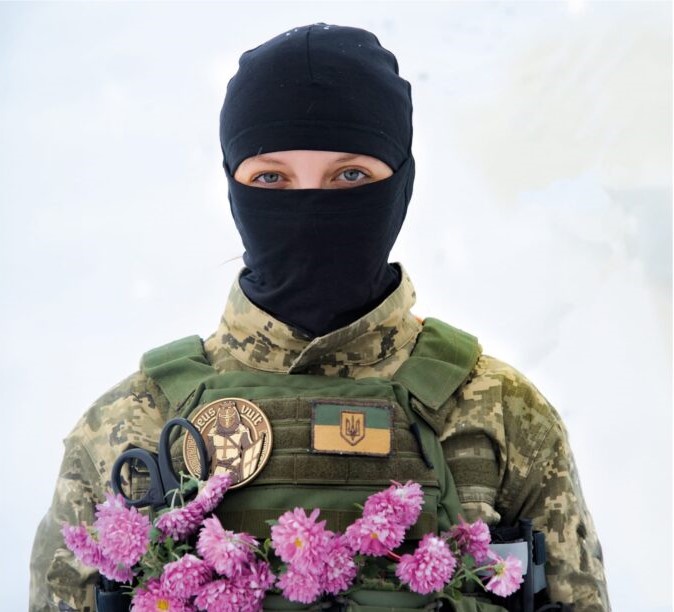
from time to time, journalists reach out,
mostly women seeking an interview,
to discuss the role of females in combat,
being a woman on a male team,
how to be, or not, an ornament,
a source of inspiration or incentive,
so many inquiries along those lines.
writers, fish, and sharks with pens contact me,
requesting comments or interviews,
but I decline, for I have naught to say,
as I know not what it is to be a woman at war.
“what nonsense!” they protest,
“with breasts, slender wrists, and waist so trim,
those curvy hips, and surely
a vagina and uterus she possesses.”
indeed, my womanly attributes persist,
at war, in the rear, the canteen,
in a landing, or deep in the woods,
in the car, an unfinished dwelling, another’s gaze,
from Luhansk to Transcarpathia, I’ve been
(haven’t ventured further for a while, but I’m certain
they wouldn’t have vanished elsewhere).
yet I assure you, I do not know
how to be a woman or ornament in this war.
people ask: “But how’s that?
you, a female, engaged in combat –
a perfect pairing, they assume.
so why the contrary claim?
seeking money or fame, perhaps?
or some other reason we cannot understand?”
I could explain being a woman at war,
existing as female amidst the fighting,
but no:
in war, I am
a sexless being.
my feminine traits may persist,
never disappearing or erased,
yet in this war, they hold no sway.
my breasts, my waist, my hips,
and even my vagina and uterus –
I assure you, they all stay with me,
yet I do not cease to be
a sexless being in the war.
my call sign’s “Boss,”
I address others as “buddy” or “brother,”
swearing when the situation demands,
making dark jokes to cope.
I wear men’s underwear
(women’s seems thinner, colder somehow),
and occasionally smoke cigars, drink whiskey,
to let my mind wander and my body unwind.
no flirting, no coy glances,
no well-groomed nails or lush lashes,
no eyeliner or makeup bag tucked away –
instead, a first aid kit, probe, and multi-tool.
my physical strength is less, it’s true,
with small feet like a child’s,
a petite military uniform,
the lightest backpack among us all.
yet none can claim I lack
knowledge, skills, or deserved respect,
or tally fewer enemies faced.
so excuse me, dear media folk,
I know how to be womanly in peacetime –
applying makeup, donning jewelry,
wearing elegant dresses or crisp suits,
stilettos or dainty flats, choosing
a new hairdo, a fresh perfume…
but I assure you, I know not at all
how to be female in the hell of war,
nor how to outlive each shattering loss,
for every loss will persist beyond me.
a sexless
being
at war.
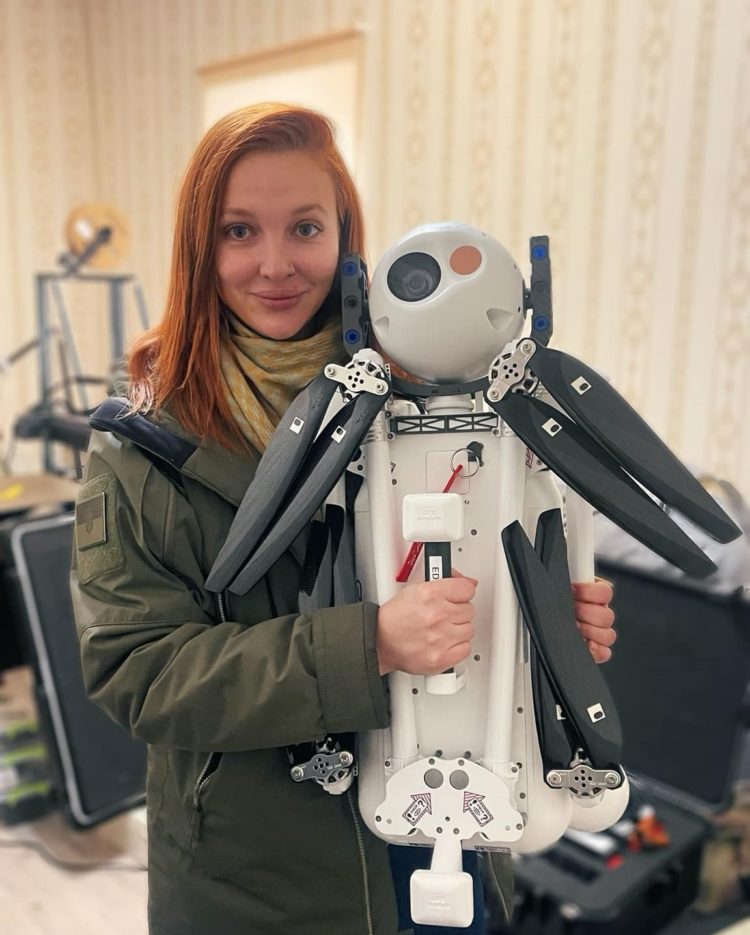
RELATED:
- Russian literature reinforces its imperialistic policy, Ukrainian writer Zabuzhko says
- Ukrainian writer’s tale aims to explain the war to French audience
- Over 30 Ukrainian writers died defending Ukraine, with more than 80 currently serving
- Ukraine’s message to the West: We are not Russia’s backyard
- Russia ‘for first time in its history’ has lost its monopoly on the Russian language, Zhadan says
- Donbasophobia is detrimental to Ukraine, says Ukrainian writer Zhadan
- Education Minister Serhiy Kvit: “There can be no Ukraine without the Ukrainian language”
- “LNR” Minister of Culture orders Ukrainian writer to be shot
- Writers, publishers counter war and aggression with culture
- Ukrainian writer receives German prize
- Luhansk writer speaks out against separatists
- Ukrainian writers establish fund for victims of Euromaidan protests
- Ukraine’s Executed Renaissance and a kickstarter for one of its modern successors

